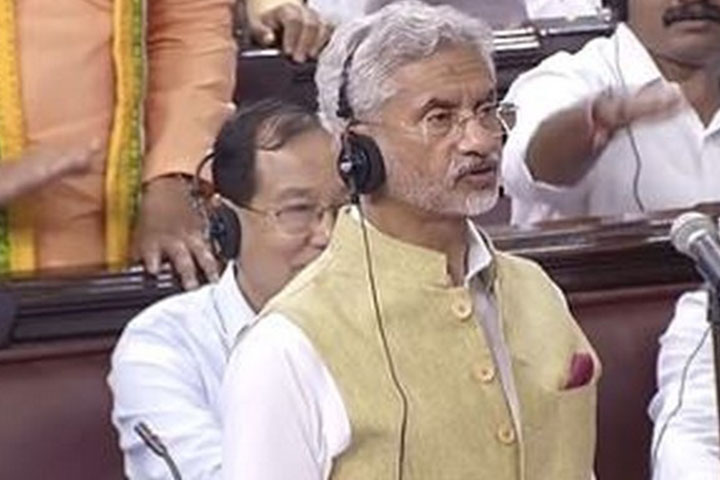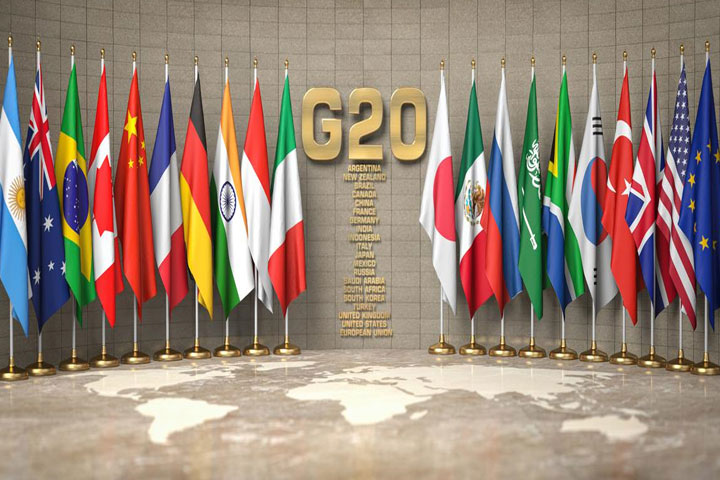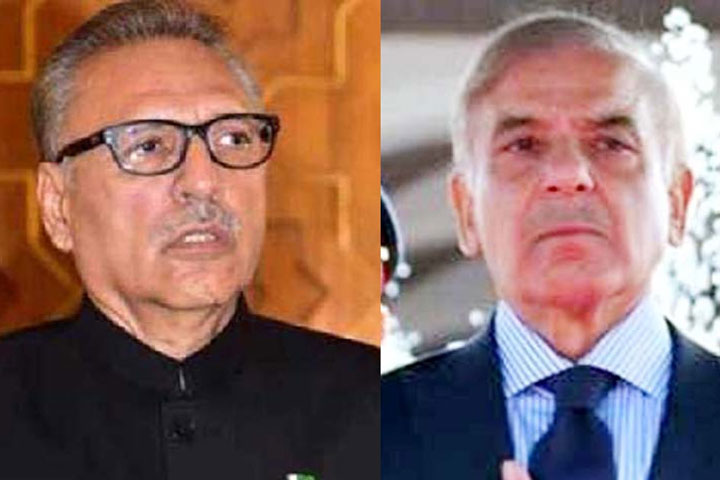India's Presidency steering G-20 in face of global chaos: Report
G20 Foreign Ministers met in New Delhi on March 1-2, under India's G20 Presidency, with the theme 'Vasudhaiva Kutumbakam' - 'One Earth, One Family, One Future,' reported Asian Lite International, adding that India successfully calibrated competing interests of all members and peddled the idea of resolving global problems through dialogue, cooperation, and mutual trust.
Despite differences in the Russia-Ukraine war, the G20 Foreign Ministers deliberated on current global challenges and demonstrated consensus to find solutions, reported Asian Lite International.
Given that the Ukraine-Russia war is currently at the centre of global discourse, and the various positions taken by the US and its European allies vis-a-vis Russia and its supposed and alleged ally China, as expected, there were voices against Russian invasion of Ukraine, as well as two opposing positions from both sides, the report said, adding that other important issues were eventually given due consideration, keeping in mind that the G20 is a platform to foster global cooperation for economic development, not a platform to discuss security issues.
Amid differing perspectives on the Russia-Ukraine conflict and obstinate positions taken by Russia and China, the G-20 Foreign Ministers' Meeting was unable to produce a joint statement because the two countries refused to sign it on the reference to Russian aggression against Ukraine that the other Western countries desired.
The lack of agreement on Russia and China's and the Western alliance's differing perceptions, claims, and counterclaims on the Ukraine-Russia war has been tolerated on almost all global fora. However, the refusal of the Russian and Chinese counterparts to sign the language of last year's joint communique in Bali could only be interpreted as a bid to defend their perceptions and national position rather than a setback to the G-20 Chair.
Further, according to Asian Lite International, despite Prime Minister Narendra Modi's appeal to "rise above (their) differences," a heated exchange of words occurred between US Secretary of State Antony Blinken, Russian Foreign Minister Sergey Lavrov, and a number of Foreign Ministers. Nonetheless, India's Prime Minister helped to clear the way for a meaningful discussion on issues other than the Russia-Ukraine conflict, saying that "we should not allow issues that we cannot resolve together to get in the way of those that we can." Prime Minister Narendra Modi urged the Excellencies to draw inspiration from India's civilizational ethos of focusing not on what divides us but on what unites us all, emphasising that the meeting was taking place in the land of Gandhi and the Buddha. Later, this was the meeting's spirit, which echoed in discussions on all other issues.
India has assumed G20 leadership at a time when the world is confronted with multifaceted challenges ranging from insufficient progress towards the Sustainable Development Goals (SDGs), climate change, pollution, and biodiversity loss, to economic slowdown, debt distress, uneven pandemic recovery, growing poverty and inequality, food and energy insecurity, and global supply chain disruptions, all exacerbated by geopolitical tensions and conflicts.
The meeting assumes significance as G20 deliberations and macro policy cooperation provide a valuable opportunity for bringing fresh perspectives and forging long-term solutions to today's global challenges. The world looks to the G-20 to ease challenges such as growth, development, economic resilience, financial stability, transnational crime, corruption, terrorism, and food and energy security, according to India's Prime Minister, the report noted.
The G20 FMM devoted a significant portion of its discussion to sustainable agriculture for global food security, which has come under increasing threat due to current conflict and tensions, as well as Covid-19 pandemic-led disruption of supply chains. The elimination of hunger and malnutrition throughout the world was deemed urgent and described as the need of the hour. Food security could be achieved by promoting the availability, accessibility, affordability, sustainability, equity, and transparent flow of food and agricultural products, including fertilisers, in all parts of the world, according to Asian Lite International.
The OD also outlined a strategy for global energy security. In this regard, it said that "undisrupted, sustainable, and resilient supply chains are important to ensure affordable, reliable and sustainable access to energy for all.
India is a global digital economy leader. A statement on digitalisation and the knowledge economy was expected to be issued at the G-20 meeting. The OD emphasised in this regard that the digital economy and green transitions are fundamentally changing the nature of work and creating new jobs and tasks. Skilling, re-skilling, and upskilling of the workforce, especially under-represented workers such as women, youth, and people with disabilities, is critical for reaping the benefits of the knowledge economy and technological progress and ensuring a just transition, the report stated.
Overall, India could accomplish everything the G20 could in a challenging global environment, especially when the world's powers are irreconcilably divided. Although the G-20 Chair was unable to obtain a signed G-20 joint statement due to differences between Russia and China on the language of the Bali communique, Anthony Blinken, the US Secretary of State, insisted that if the majority of members have reaffirmed their commitment to the Bali declaration, a few members declining to sign does not matter much, it noted further.
However, India would use its diplomatic efforts to find a common ground and, if possible, persuade the world powers to end the Russia-Ukraine war because the suffering caused by the war affects the entire world, particularly the Global South. However, the G-20 is not the appropriate platform for this, so efforts should be made in other fora and through other mechanisms, Asian Lite International reported.
10 Mar 2023,14:56


















 Live Tv
Live Tv









